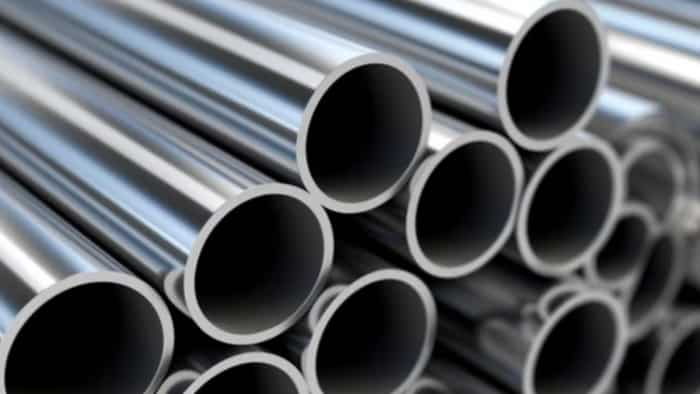PM Narendra Modi, Japan's Suga for free, open Indo-Pacific; oppose economic coercion, unilateral attempts' to change status quo
They agreed to enhance bilateral security and defence cooperation, including in the area of defence equipment and technologies, according to a statement issued by the Ministry of External Affairs (MEA).

Prime Minister Narendra Modi and his Japanese counterpart Yoshihide Suga have reaffirmed the importance of maritime security towards the realisation of a "free and open" Indo-Pacific as they shared strong opposition to the 'economic coercion and unilateral attempts to change the status quo by force in the East and South China Seas, the Japanese Foreign Ministry said.
During their meeting here on Thursday, the two Prime Ministers reviewed the multi-faceted bilateral relationship and exchanged views on recent global developments, including in Afghanistan.
They agreed to enhance bilateral security and defence cooperation, including in the area of defence equipment and technologies, according to a statement issued by the Ministry of External Affairs (MEA).
According to a statement issued by Japan's Ministry of Foreign Affairs (MOFA), the two leaders shared the view on the importance of maritime security towards the realisation of a "free and open Indo-Pacific" and reaffirmed to work closely with each other and also with the US and Australia in order to strengthen the connectivity in the region as well as to form an international order based on the rule of law.
"The two leaders shared strong opposition to the economic coercion and unilateral attempts to change the status quo by force in the East and South China Seas," the MOFA said.
Suga reiterated the importance of the partnership with India, which shares the basic values with Japan, and especially the role of Modi, who has long advocated the importance of rule-based order and the rule of law to realise a "free and open Indo-Pacific'', it said.
India, the US and several other world powers have been talking about the need to ensure a free, open and thriving Indo-Pacific in the backdrop of China's rising military manoeuvring in the region.
China claims nearly all of the disputed South China Sea, though Taiwan, the Philippines, Brunei, Malaysia and Vietnam all claim parts of it. Beijing has built artificial islands and military installations in the South China Sea. China also has a territorial dispute with Japan in the East China Sea.
Foreign Secretary Harsh Vardhan Shringla, briefing the media on the meeting between Prime Minister Modi and his Japanese counterpart Suga, said that it was their first in-person meeting.
"The issue of China as a very major global player did come up and this is one of the many issues that were discussed," he said when asked whether reference to China's conduct over the last couple of years came in during the meeting.
According to the MOFA statement, Suga expressed hope that the Varanasi International Cooperation and Convention Centre, which was built with Japan's grant aid which both the Prime Ministers celebrated together in July upon the completion, would be utilised as a "proof of friendship between Japan and India", the MOFA statement said.
Modi expressed his gratitude for Suga's significant contribution to the Japan-India relations and stated that India's relations with Japan are very important not only for both countries but also for the stability and prosperity of the region and the world, it said, adding that he also congratulated the success of Tokyo 2020 Olympic and Paralympic Games.
The two leaders concurred that they would continue to cooperate in tackling COVID-19, as well as in the security field including holding the next round of Japan-India Foreign and Defence Ministerial Meeting (2 + 2) at an early date, the MOFA statement said.
They also concurred on continuing cooperation in the field of economy and economic cooperation including in digital, green technology, healthcare, and enhancing connectivity.
Suga mentioned potential areas of cooperation such as establishing safe and reliable 5G network and submarine cables, strengthening industrial competitiveness and supply chain, realising realistic energy transitions, accepting workers from India under the system of Specified
Skilled Worker (SSW), enhancing the exchanges of IT professionals, and promoting development of India's North Eastern Region.
They also reaffirmed that they would continue to cooperate towards the steady progress of the high-speed rail project, which is the symbol of the Japan-India cooperation.
In the end, they shared the views that various efforts would be made on the 70th Anniversary of the Establishment of Diplomatic Relations between Japan and India in 2022 to take the bilateral relations as the Special Strategic and Global Partnership to a new height, it added.
According to a statement by the MEA, Modi thanked Suga for his personal commitment and leadership, both as Prime Minister and Chief Cabinet Secretary earlier, in enabling great advances in the India-Japan Special Strategic and Global Partnership over the last few years.
The two Prime Ministers reviewed the multi-faceted relationship between the two countries and exchanged views on recent global and regional developments, including in Afghanistan.
"They reaffirmed their commitment towards a free, open and inclusive Indo-Pacific region," it said.
See Zee Business Live TV Streaming Below:
In a tweet, Prime Minister Modi said Japan is one of India's most valued partners.
"I had an excellent meeting with PM @sugawitter on a variety of subjects that would further boost cooperation between our nations. A strong India-Japan friendship augurs well for the entire planet," Modi tweeted.
"Furthering friendship with Japan. Prime Ministers @narendramodi and @sugawitter had a fruitful meeting in Washington DC. Both leaders held discussions on several issues including ways to give further impetus to trade and cultural ties," the MEA said in a tweet after the meeting.
"Discussed a range of issues: Indo-Pacific, regional developments, supply chain resilience, trade, digital economy & P2P ties," it said.
A special strategic and global partnership with Japan- firmly rooted in history and based on common values, it further said.
The two leaders welcomed the launch of the Supply Chain Resilience Initiative (SCRI) between India, Japan and Australia earlier this year as a collaborative mechanism to enable resilient, diversified and trustworthy supply chains, the MEA statement said.
Prime Minister Modi highlighted the need to develop bilateral partnerships in manufacturing, MSME and skill development.
Suga informed Modi that in order to operationalise the Specified Skilled workers (SSW) agreement which was signed earlier this year, the Japanese side would be undertaking skill and language tests in India from early 2022, it said.
They discussed the COVID-19 pandemic and efforts to address it and highlighted the increasing importance of digital technologies and positively evaluated the progress in the India-Japan Digital Partnership, especially in start-ups.
They exchanged views on further collaboration in various emerging technologies. Discussions also took place on climate change issues and green energy transition, and the potential for Japanese collaboration with India's National Hydrogen Energy Mission, the statement said.
The two prime ministers reaffirmed their commitment to advance efforts to facilitate the smooth and timely implementation of the Mumbai-Ahmedabad High-Speed Rail (MAHSR) project.
They also welcomed the progress in bilateral developmental projects in India's North Eastern Region under the India-Japan Act East Forum, and noted possibilities for further enhancement of such cooperation, it said.
Suga had called off a scheduled visit to India in April end in view of the coronavirus situation.
Foreign Secretary Shringla further said that the two leaders agreed to enhance bilateral, security and defence cooperation, including the areas of defence equipment and technologies.
Both sides expressed confidence that the momentum achieved in the relationship in the last few years would continue under the new administration in Japan and Prime Minister Modi said he looked forward to welcoming the next Prime Minister of Japan to India for the India-Japan Annual Summit, he said.
"The ongoing visit of the Prime Minister has added momentum to the pace, depth and diversity of bilateral relations, and strengthened their convergence on issues of mutual interest," the Foreign Secretary added.
India and Japan are part of the Quad grouping along with the US and Australia.
US President Joe Biden is hosting the first in-person Quad summit at the White House on September 24 to be attended by Modi, Suga and Australian Prime Minister Scott Morrison.
Developments in Afghanistan, the COVID-19 pandemic and ways to expand cooperation for a free, open and inclusive Indo-Pacific are set to be the central focus of the four-nation grouping Quad.
Get Latest Business News, Stock Market Updates and Videos; Check your tax outgo through Income Tax Calculator and save money through our Personal Finance coverage. Check Business Breaking News Live on Zee Business Twitter and Facebook. Subscribe on YouTube.
05:32 PM IST











 Biotech startups in India surged from 50 to about 9,000 in last decade: Jitendra Singh
Biotech startups in India surged from 50 to about 9,000 in last decade: Jitendra Singh PM Modi urges people to visit Rann Utsav
PM Modi urges people to visit Rann Utsav 91% of Smart Cities projects completed, Rs 1.47 lakh crore invested: Centre
91% of Smart Cities projects completed, Rs 1.47 lakh crore invested: Centre Government removing roadblocks in path of youth by introducing reforms: Prime Minister Narendra Modi
Government removing roadblocks in path of youth by introducing reforms: Prime Minister Narendra Modi  Cabinet approves Rs 2,481 crore National Mission on Natural Farming
Cabinet approves Rs 2,481 crore National Mission on Natural Farming